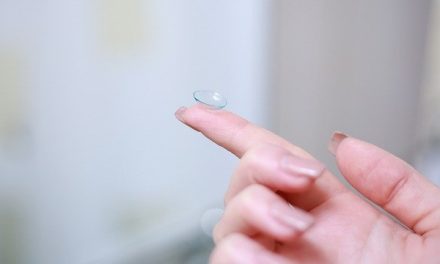If you’re a parent, you want to do everything you can to ensure your child’s bright future. One of the most important things you can do is help prevent juvenile delinquency. This doesn’t mean that you have to be paranoid and constantly watch over your child – there are simple things you can do to help them stay on the right track. This blog post will discuss six tips for preventing juvenile delinquency. Follow these tips, and rest assured that your child is headed down the right path!
What is Delinquency?

Photo by Christina @ wocintechchat.com on Unsplash
Most people consider delinquency a crime, but it is much broader. The legal definition of juvenile delinquency is “the commission of an act by a minor child that would be considered a crime if committed by an adult.” So, while some delinquent acts may not technically be crimes, they are still problematic behaviors that can have serious consequences.
Age-Crime Curve
The age-crime curve is a statistical phenomenon that shows that crime rates are highest among adolescents and young adults and then decrease steadily with age. This is thought to be due to things like brain development (the prefrontal cortex – responsible for impulse control – is not fully developed until the early 20s) and hormones (testosterone has been linked to aggression).
However, this does not mean that all teenagers are delinquents – far from it. Most young people do not engage in delinquent behaviors. Nevertheless, an experienced juvenile delinquency attorney can help you with your child’s potential problems. So, what can parents do to help prevent their children from becoming part of the small minority that does? Well, the first thing every parent can do is to spot the early signs of delinquency.
Early Signs of Delinquency
Several early warning signs indicate a child may be headed down the wrong path. Suppose you notice any of these behaviors in your child. In that case, it’s important to take action immediately:
- Withdrawing from family and friends: If your child suddenly stops spending time with their friends or wants to be left alone more often, it may be a sign that they’re getting involved with a bad crowd.
- Poor performance in school: A sudden decrease in grades or interest in school can signify that something is going on outside of school, distracting your child.
- Increased aggression: If your child acts out more often, either through verbal or physical aggression, it may be a sign that they’re feeling frustrated and hopeless.
- Breaking rules: If your child starts breaking household rules or engaging in riskier behavior, it’s a sign that they’re testing boundaries.
- Lying or stealing: Dishonesty is a common sign of delinquency – if you notice your child lying or stealing, it’s time to have a serious talk.
- Using drugs or alcohol: Drug and alcohol use is often a sign that a child is trying to cope with something difficult in their life
- Associating with a bad crowd: If your child is hanging out with kids known to be troublemakers, they’ll likely get caught up in bad behavior.
Many different factors can contribute to juvenile delinquency. Some of these include:
Poverty
Poverty is one of the most important factors in juvenile delinquency. Studies have shown that children who grow up in poverty are more likely to engage in delinquent behavior than those who don’t. There are a few reasons for this. First, children who grow up in poverty often have less parental supervision and support. They may also have less access to resources and opportunities, leading to frustration and resentment.
Family Structure
Another important factor is family structure. Children from single-parent or broken homes are more likely to engage in delinquent behavior than those with two parents at home. This is because they often lack the supervision and support that they need. They may also have a harder time forming attachments with their parents.
Peer Pressure
Peer pressure is also a significant factor in juvenile delinquency. Children who associate with delinquent peers are likelier to engage in delinquent behavior. This is because they are exposed to more negative influences and may feel pressure to conform to the group.
Mental Illness
Mental illness is another factor that can contribute to juvenile delinquency. Children with mental health problems are more likely to act out and engage in delinquent behavior. This is because they may have difficulty controlling their emotions and impulses.
Family Dysfunction
Family dysfunction is also a significant factor. Children from families with a history of abuse, violence, or substance abuse are more likely to engage in delinquent behavior. This is because they may learn that violence and crime are acceptable ways to cope with problems.
Drug and Alcohol Abuse
Drug and alcohol abuse is another factor that can contribute to juvenile delinquency. Children who abuse drugs and alcohol are more likely to engage in criminal activity. This is because they may be more likely to act impulsively and recklessly.
Mental Health Issues
Mental health issues are another factor that can contribute to juvenile delinquency. Children with mental health problems are more likely to act out and engage in delinquent behavior. This is because they may have difficulty controlling their emotions and impulses.
Poor School Performance
Poor school performance is also a significant factor. Children who do poorly in school are more likely to engage in delinquent behavior. This is because they may feel discouraged and not have the same opportunities as their peers.
While there is no surefire way to prevent all instances of juvenile delinquency, there are things that parents can do to lower the risk.
How to Prevent Delinquency?
Now that you know some signs of delinquency, what can you do to prevent it? Here are six tips:
Supervision
One of the most important things you can do to prevent juvenile delinquency is to provide supervision for your children. This doesn’t mean that you have to be with them every minute of the day, but it does mean being aware of their activities and who they’re spending time with. Also, if you know your child will be home alone, make sure they have a way to contact you if there’s an emergency.
Set Rules and Consequences
It’s important to set rules for your children and enforce them with consequences. If you don’t set rules, your children won’t know what’s expected of them – and if you don’t enforce the rules, they’ll learn that they can get away with anything. Make sure the rules are reasonable and that the consequences are appropriate. For example, if your child breaks a rule, you might take away their privilege of going out with friends for a week.
Encourage Good Grades
One way to help prevent juvenile delinquency is to encourage your children to do well in school. Good grades indicate your child is engaged in their education and less likely to get into trouble. Talk to your child about the importance of doing well in school and offer incentives for good grades, such as allowing them to participate in extracurricular activities or getting a new toy.
Teach Them Right from Wrong
It’s important to teach your children the difference between right and wrong. This can be done through religious instruction, stories, or discussions about morals and values. Helping your child understand what is right and what is wrong will go a long way in preventing juvenile delinquency.
Please get Involved in Their Lives
Another way to prevent juvenile delinquency is to get involved in your child’s life. This means attending school events, getting to know their friends and parents, and being there for them when they need to talk. Showing your child that you’re interested in their life will help keep them on the right track.
Communicate Openly
Finally, one of the most important things you can do to prevent juvenile delinquency is to communicate openly with your children. This means being available to talk about anything, no matter how difficult. If your child knows they can come to you with anything, they’re less likely to turn to a life of crime.
Types of Parenting that Contribute to Juvenile Delinquency
There are several different types of parenting that can contribute to juvenile delinquency. These include:
- Authoritarian parenting is when parents are very strict and have high expectations but offer little warmth or support.
- Permissive parenting is when parents are lenient and give their children much freedom without providing much guidance.
- Neglectful parenting is when parents are uninvolved in their children’s lives and don’t provide the necessary care or supervision.
While no one type of parenting is guaranteed to lead to juvenile delinquency, research has shown that authoritarian and neglectful parenting are more likely to contribute than permissive parenting. Talk to your child’s doctor or counselor if you’re concerned about your parenting style. They can help you make changes that will benefit your family.
Closing Thoughts
You can positively influence your child and help prevent juvenile delinquency as a parent. Supervising your children, setting rules and consequences, encouraging good grades, teaching them right from wrong, getting involved in their lives, and communicating openly are all effective ways to do this. So do your part to help keep your child on the right track!








Recent Comments